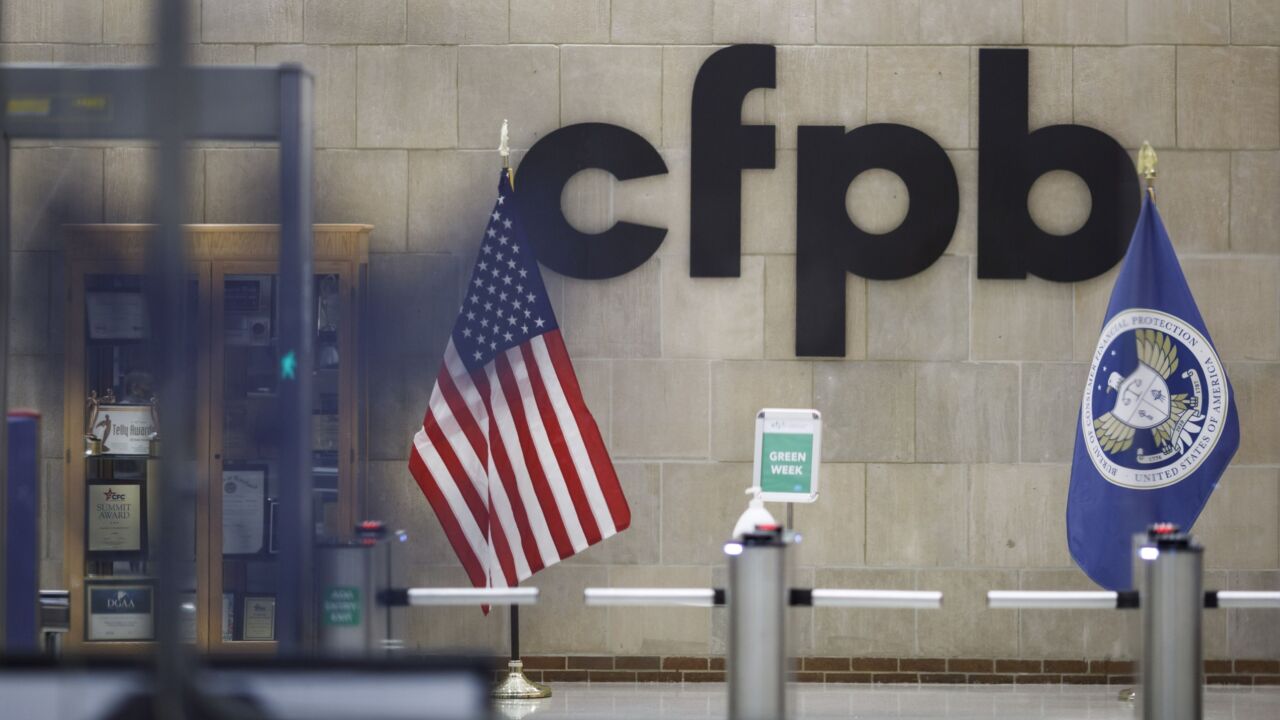-
A majority of borrowers who together hold about $400 billion in federal student debt made no payment on their loans in the pandemic era, taking full advantage of a freeze put in place at the onset of the COVID-19 crisis.
May 31 -
A recent California Supreme Court decision means that lenders can be on the hook for consumers’ attorney fees in situations where car dealers defraud them. The case involved TD Auto Finance and a dealer that allegedly sold a vehicle without certain advertised features.
May 30 -
The system may be good for the banks that own it, but it is not meeting its public mission.
May 30
-
The nation’s six largest credit card companies are facing questions from the Consumer Financial Protection Bureau over their alleged failure to report customer payment data on a regular basis. The agency says that the industry’s practices can hurt consumers’ ability to qualify for cheaper loans.
May 26 -
Companies that use artificial intelligence or machine learning in their loan decisions are legally required to provide a specific explanation when applications get denied, the Consumer Financial Protection Bureau said in a policy statement.
May 26 -
Royal Bank of Canada posted earnings that topped analysts’ estimates as business loans and solid credit conditions powered its retail banking business.
May 26 -
The bureau’s new office of competition and innovation will promote competition, host events and seek to make it easier for consumers to switch financial providers.
May 24 -
The Swedish buy now/pay later company Klarna Bank saw its borrowing costs rise to their highest level on record as rising rates hit the company’s debt and equity valuation.
May 23 -
Strong spending trends, combined with a reduction in card repayment rates, contributed to 17% loan growth last month. The data suggests that rising fears of a recession aren’t yet changing consumers’ behavior.
May 19 -
While red states like Florida have embraced the cryptocurrency industry, officials in New York and Illinois are taking action on Democratic Party priorities such as diversity and climate change. Here's a look at some hotbeds of innovative policymaking.
May 18 -
A 2019 state law limits annual interest rates on many loans to 36%, but some high-cost lenders have found a way to continue operating in California by partnering with banks. Now Democratic legislators want the Federal Deposit Insurance Corp. to take action.
May 16 -
Millions of U.S. students just found out how much they’ll have to pay on student loans for the coming school session — and it’s a lot more than last year.
May 12 -
The San Francisco-based online lender originated more than $2 billion in personal loans during the first quarter, a big jump from a year earlier. The surge made up for softness in the company's home loan and student loan businesses.
May 11 -
Consumer Financial Protection Bureau Director Rohit Chopra is pushing the envelope of the bureau's power and jurisdiction in untested ways. More companies are disputing the CFPB’s allegations, refusing to pay large fines or admit wrongdoing, and vowing to defend themselves in court.
May 11 -
The CEOs of both Upstart and Oportun said this week that while they will maintain their existing interest rate limits, some higher-risk customers will no longer qualify for their loans as borrowing costs rise.
May 10 -
On Dec. 31, 2021. Dollars in thousands.
May 9 -
GradFin offers advisory services to Americans who want assistance with their student loans. The acquisition is part of the Cleveland bank’s strategy of adding niche digital businesses.
May 9 -
On Dec. 31, 2021. Dollars in thousands.
May 9 -
The Consumer Financial Protection Bureau filed more actions against redlining and discriminatory practices in 2021 and is skeptical that that predictive analytics will reduce bias.
May 6 -
During the pandemic, consumer lenders have found it easier to collect payments because the federal student loan moratorium has made many borrowers more liquid. A plan for blanket forgiveness reportedly under consideration by President Biden could sustain that trend.
May 3
















